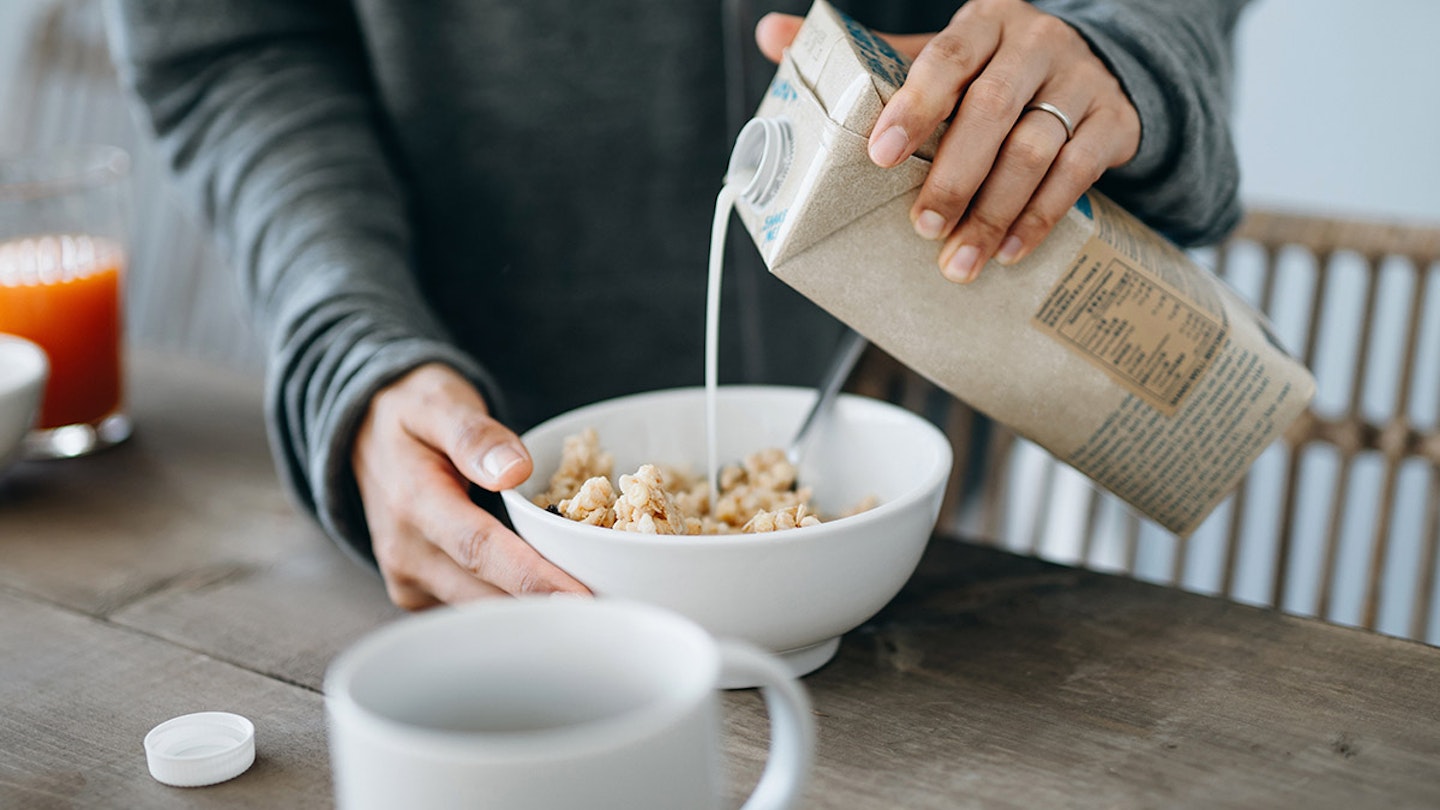Whether you’re vegan, lactose-intolerant, dairy-free or simply don’t like the taste of regular milk, you’ll find plenty of milk alternatives down at your local supermarket. These days, the ‘free from’ aisles are flooded with plant-based milks, so it can be difficult trying to decide which milk alternative is right for you and the most nutritious. Below, we’ve rounded up the different milk alternatives to quench your thirst.
Pros of plant-based milk alternatives
• Great if you have an allergy to animal-based milks
• Most are low in saturated fat and contain healthy fats (mono and polyunsaturated fats)
• Some alternatives are lower in calories
• Certain alternatives are a good source of protein
• Available in organic or fortified versions
Cons of plant-based milk alternatives
• More expensive
• Some alternatives contain added sugars (look for alternatives with ‘unsweetened’ on the label if you’re after a healthier alternative)
• Contains stabilisers, preservatives and thickeners, which cows milk doesn’t
• Lower in protein
• Fortified versions still can’t be relied on to give you enough calcium or other key nutrients in your diet
Best milk alternatives
Soy milk
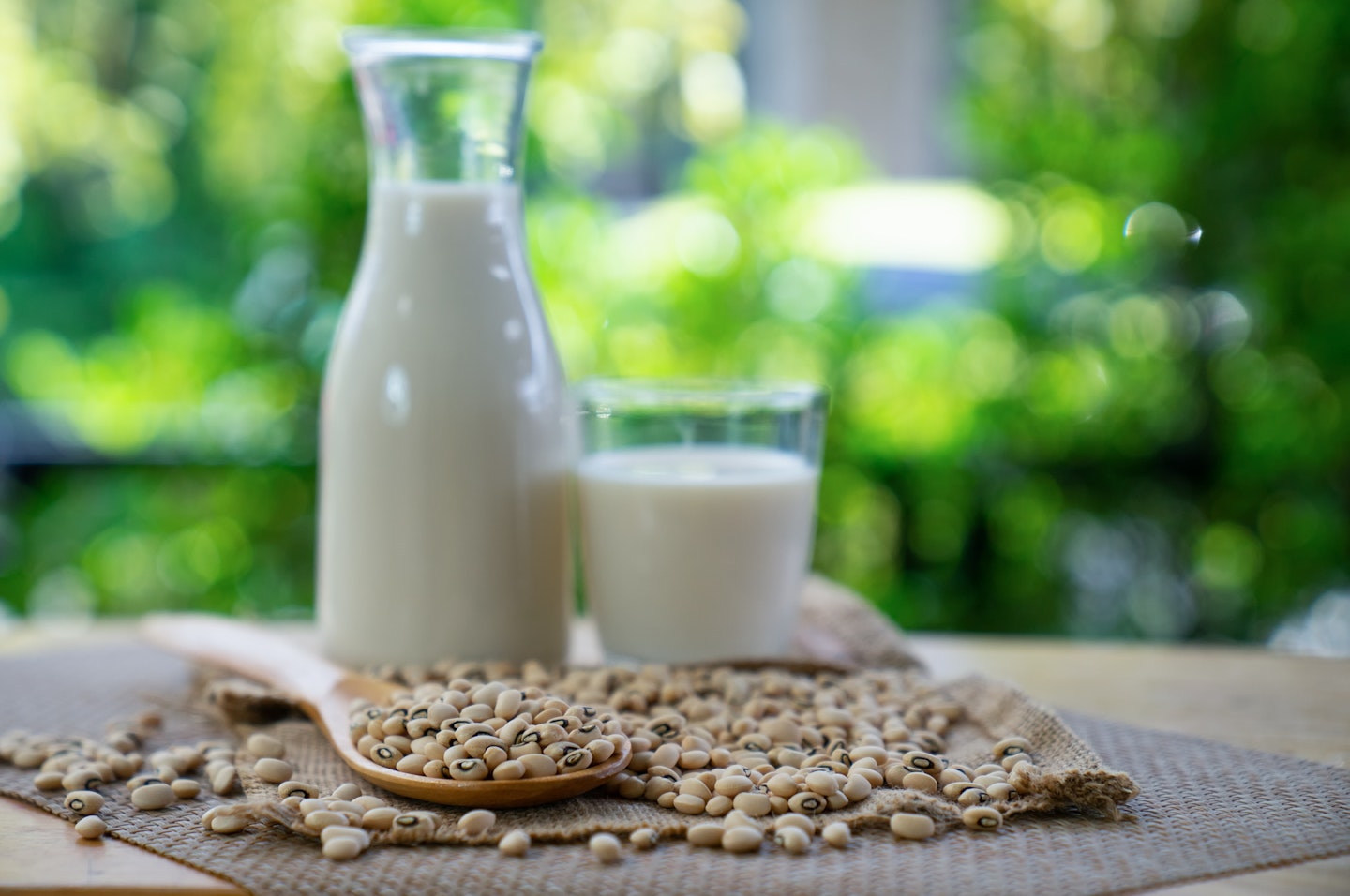
One of the most popular plant-based milks, soy milk is made from blending soybeans then straining out the leftover pulp. It’s rich in healthy fats, a good source of protein and is filled with antioxidants. Works well as a substitute to cow's milk.
Oat milk
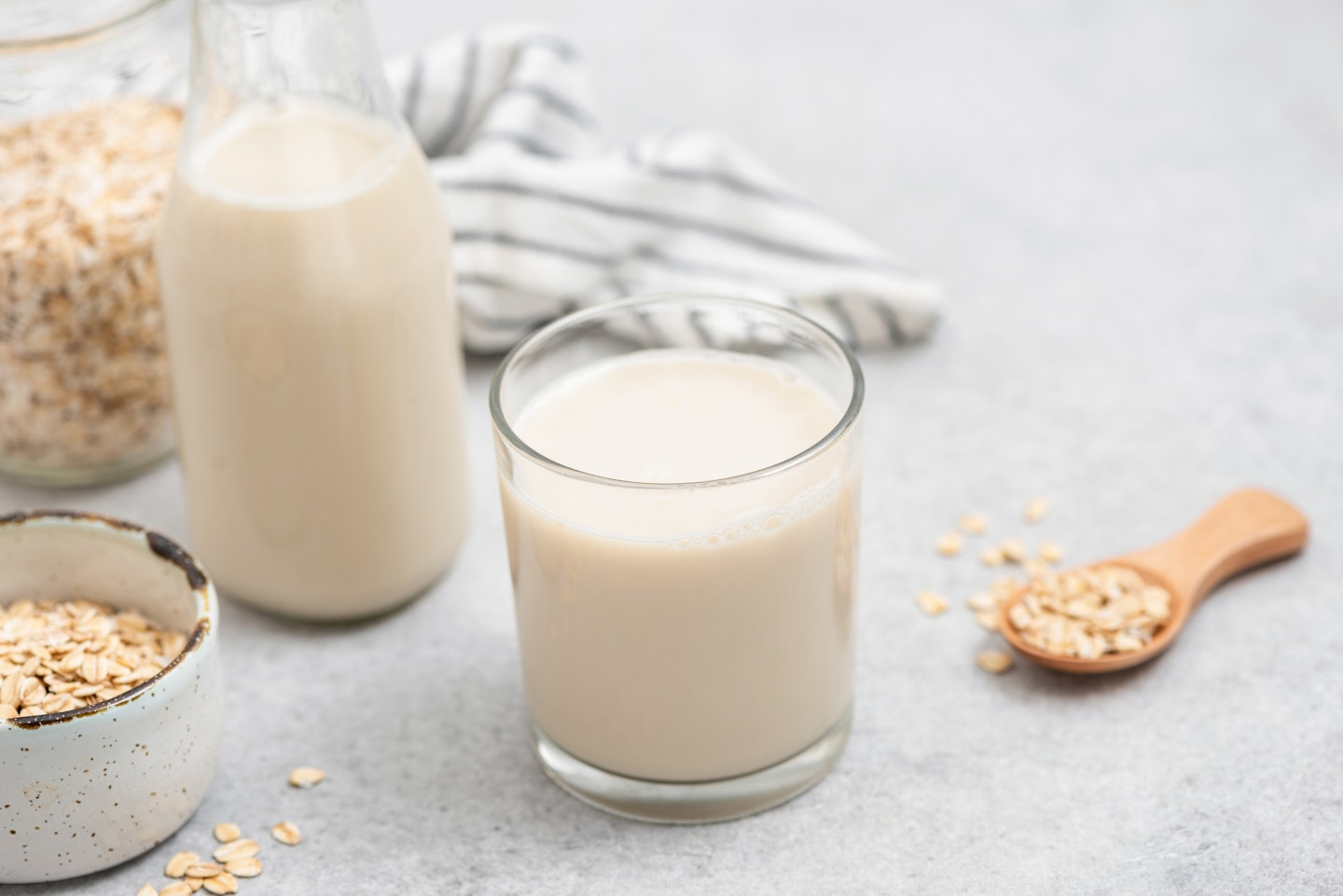
Arguably the trendiest milk alternative for coffees, tea and cereal, oat milk contains added fibre, is naturally free of gluten and is more sustainable than soy and almond alternatives. However, it is often higher in calories.
Almond milk
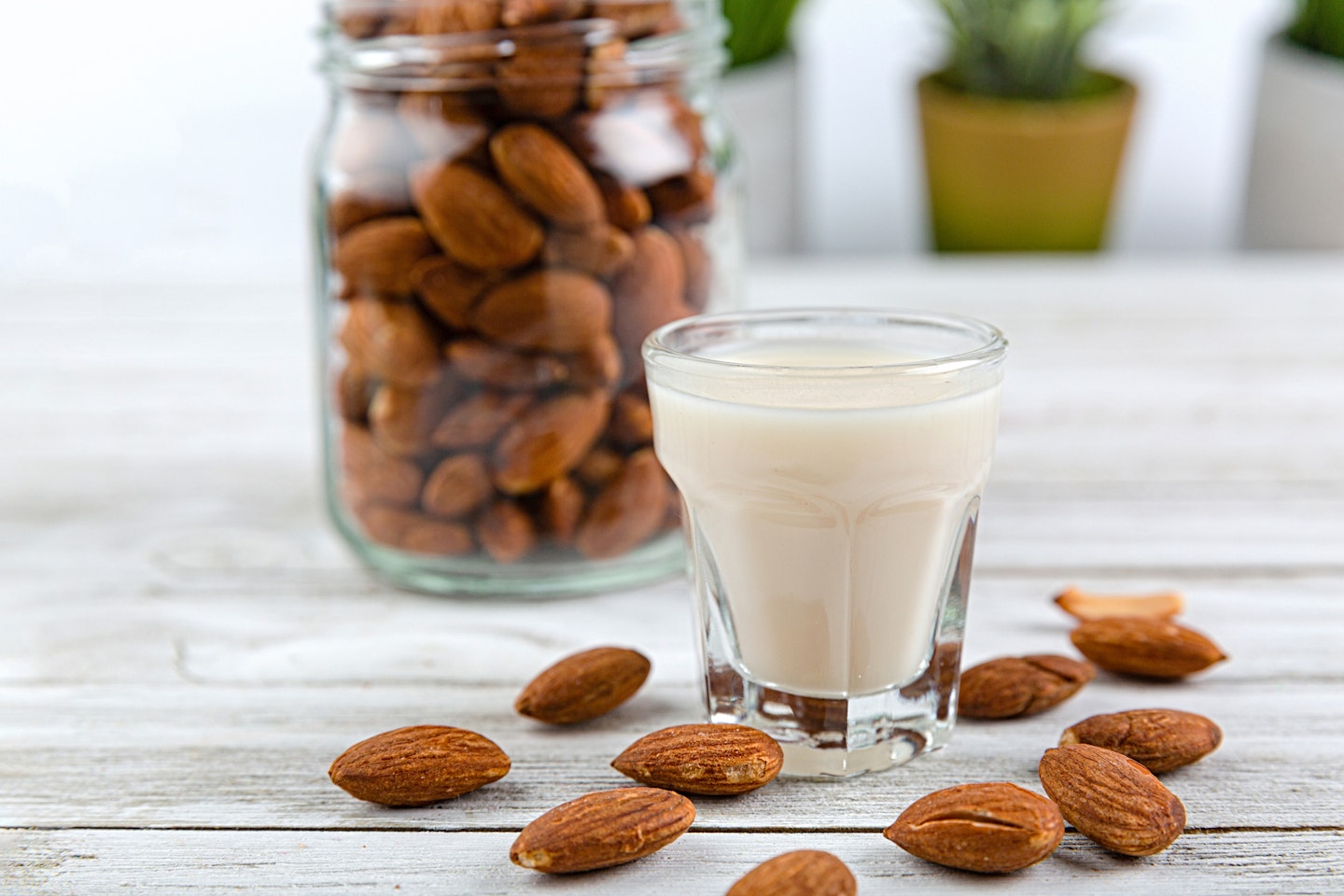
Almond milk has a mild, nutty taste and is another popular choice to have alongside hot beverages, cereals or use in cooking. It’s low in calories too, but low in protein. It’s also not suitable for people with nut allergies and a lot of brands are also sweetened.
Hazelnut milk

A delicious alternative to add into your hot chocolate (if you enjoy the taste of Nutella), coffees and to use in baking. Hazelnut milk is low in calories, gluten-free and contains no saturated fat or cholesterol. Just like almond milk, it contains little protein and can be high in sugar.
Coconut milk
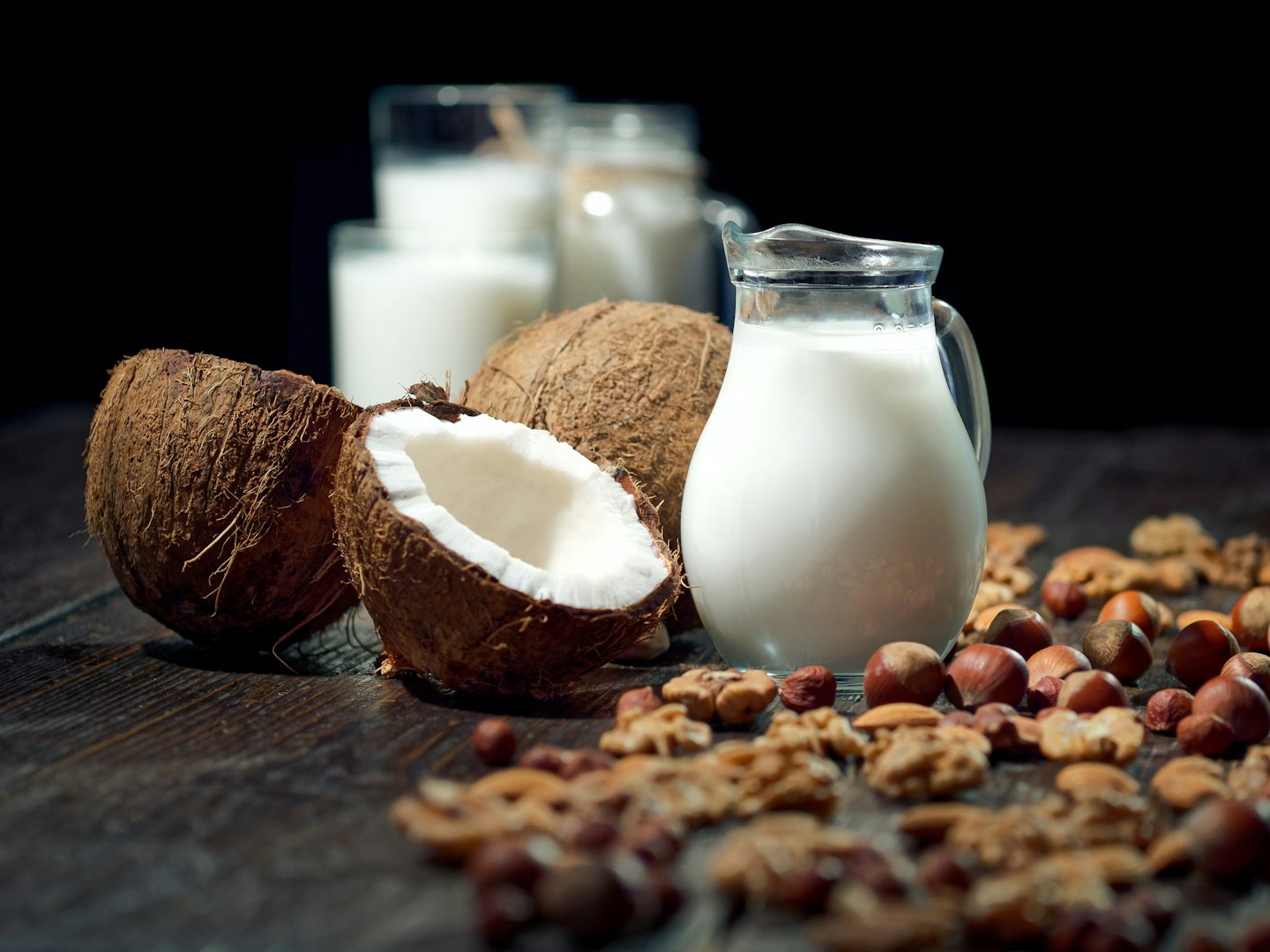
Made from coconut cream and water, coconut milk is a good alternative if you want something creamy and sweet. It’s quite high in calories as it had a high fat content (so opt for a unsweetened variety if you’re calorie counting) and is low in protein. However, as coconut isn’t actually a ‘nut’ it’s usually safe for those with nut-allergies to drink.
Cashew milk
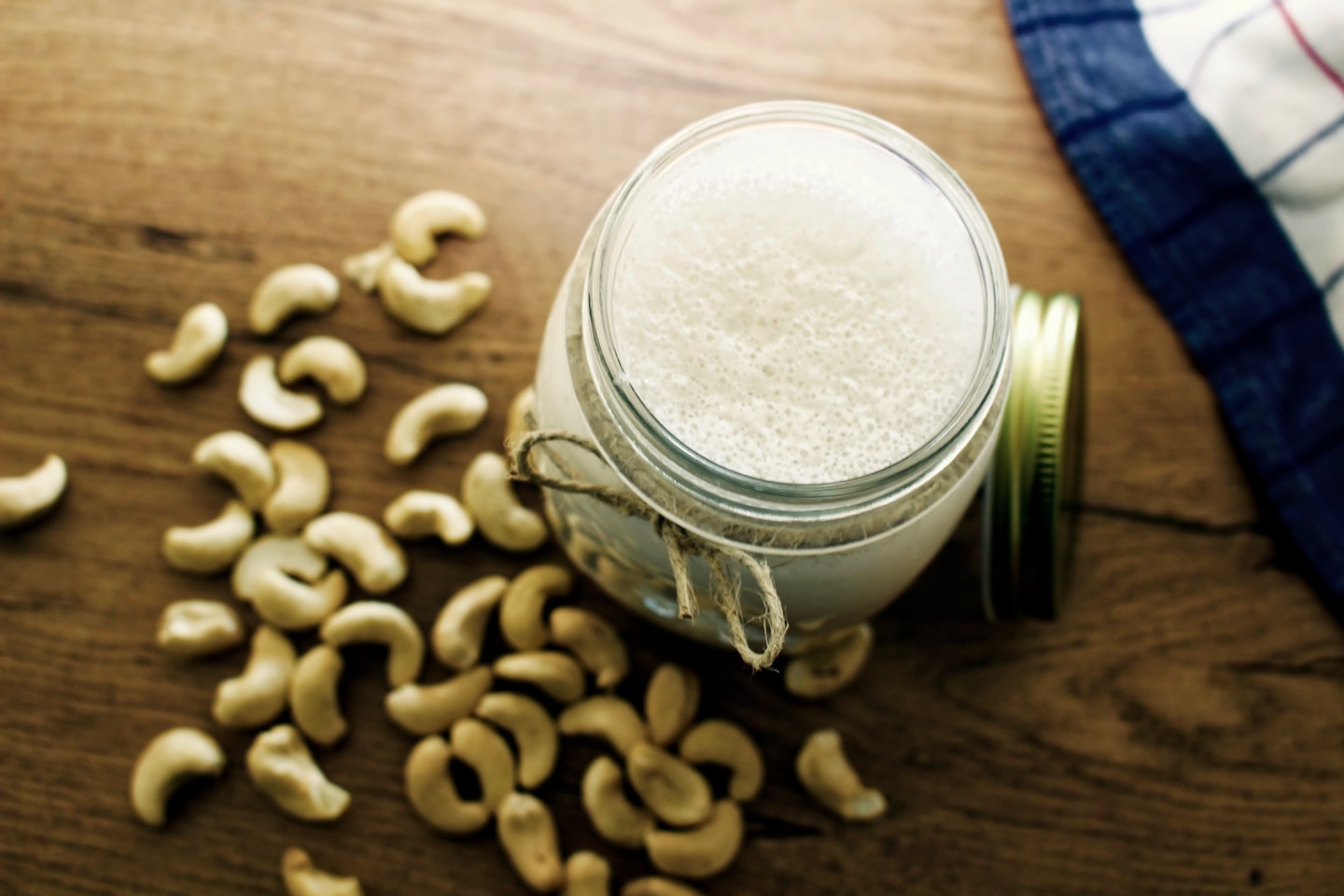
Cashew milk is rich and creamy, with a milder taste than other nut milk. It contains calcium, vitamin D, gluten-free, low in calories and is a good source of vitamin K, which is needed for blood clotting and healthy bones. It is however low in protein, fibre and contains added sugar (so opt for unsweetened versions).
Rice milk
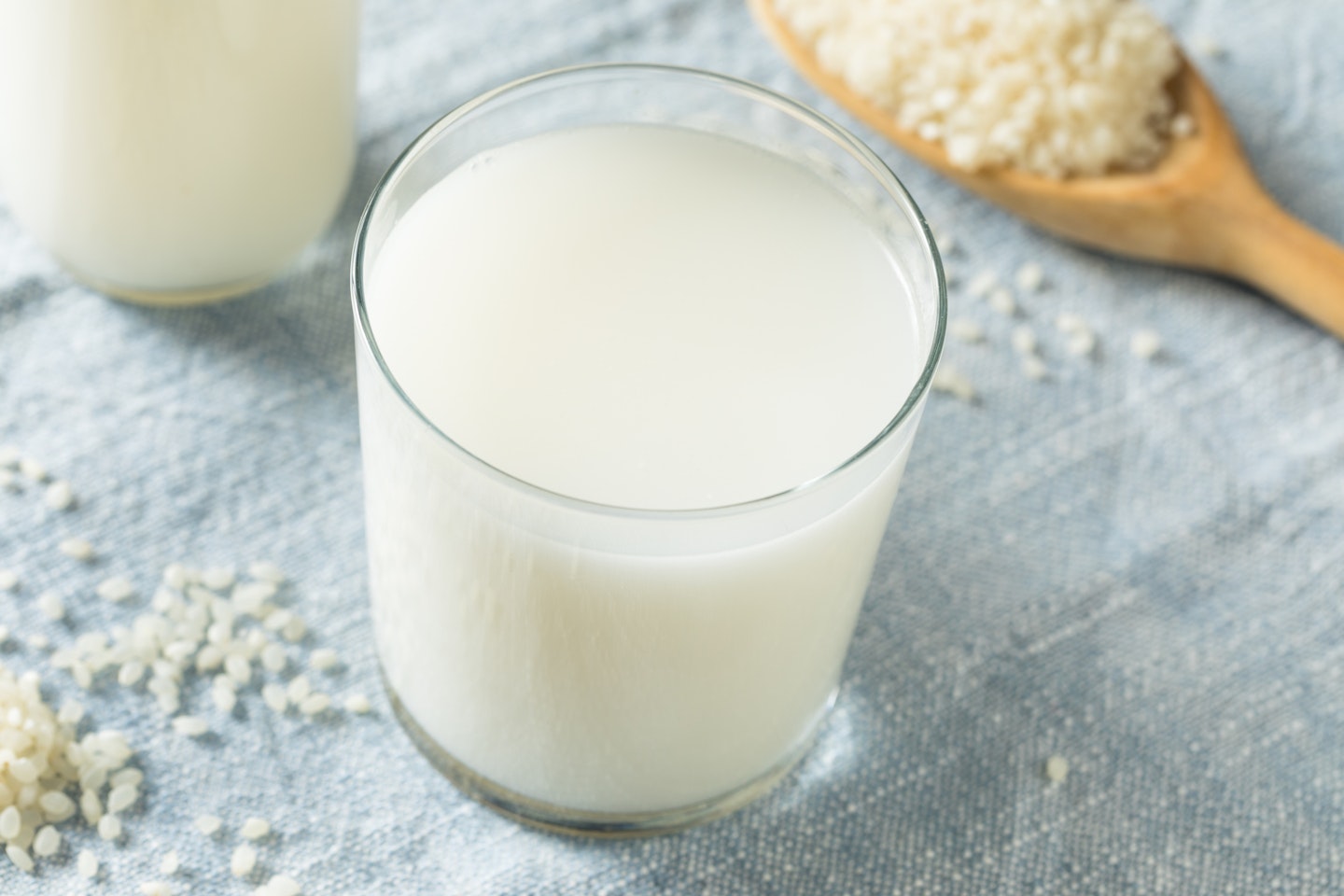
Made from grinding grains of rice then filtering it with water, rice milk is usually a lot lower in calories than other milk alternatives, however, due to its mild taste, a lot of varieties contain added sugar. It’s also higher in carbs, as it’s made from a grain, and low in protein.
Pea milk
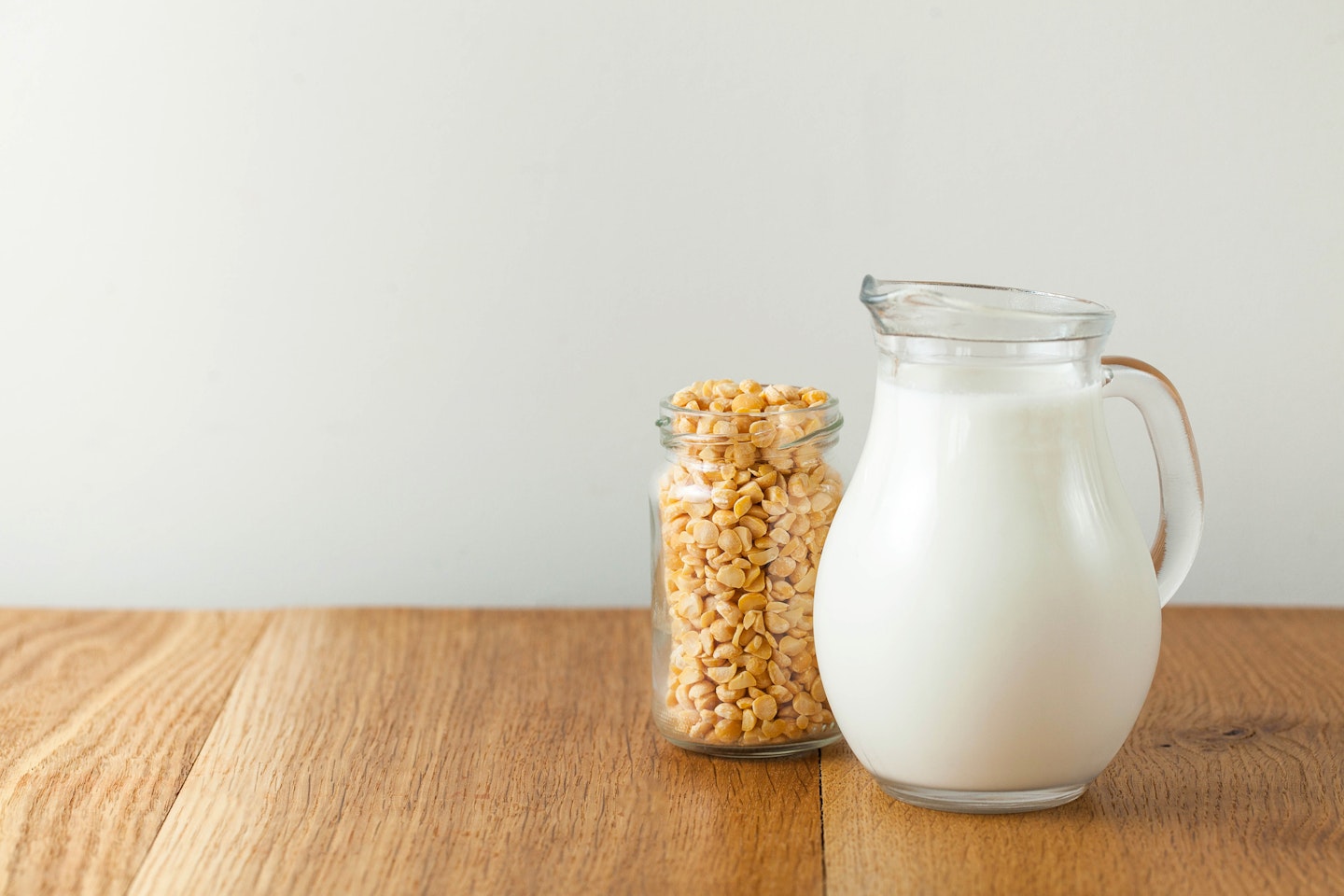
This is made from yellow split peas, not the green ones in your freezer. It’s creamy like soy milk and has a slightly less nutty taste. It’s a good source of protein, as peas are legumes, as well as iron and calcium. Look for unsweetened versions though, as it does tend to contain oils, sweeteners and thickers to help with its taste and texture.
Hemp milk
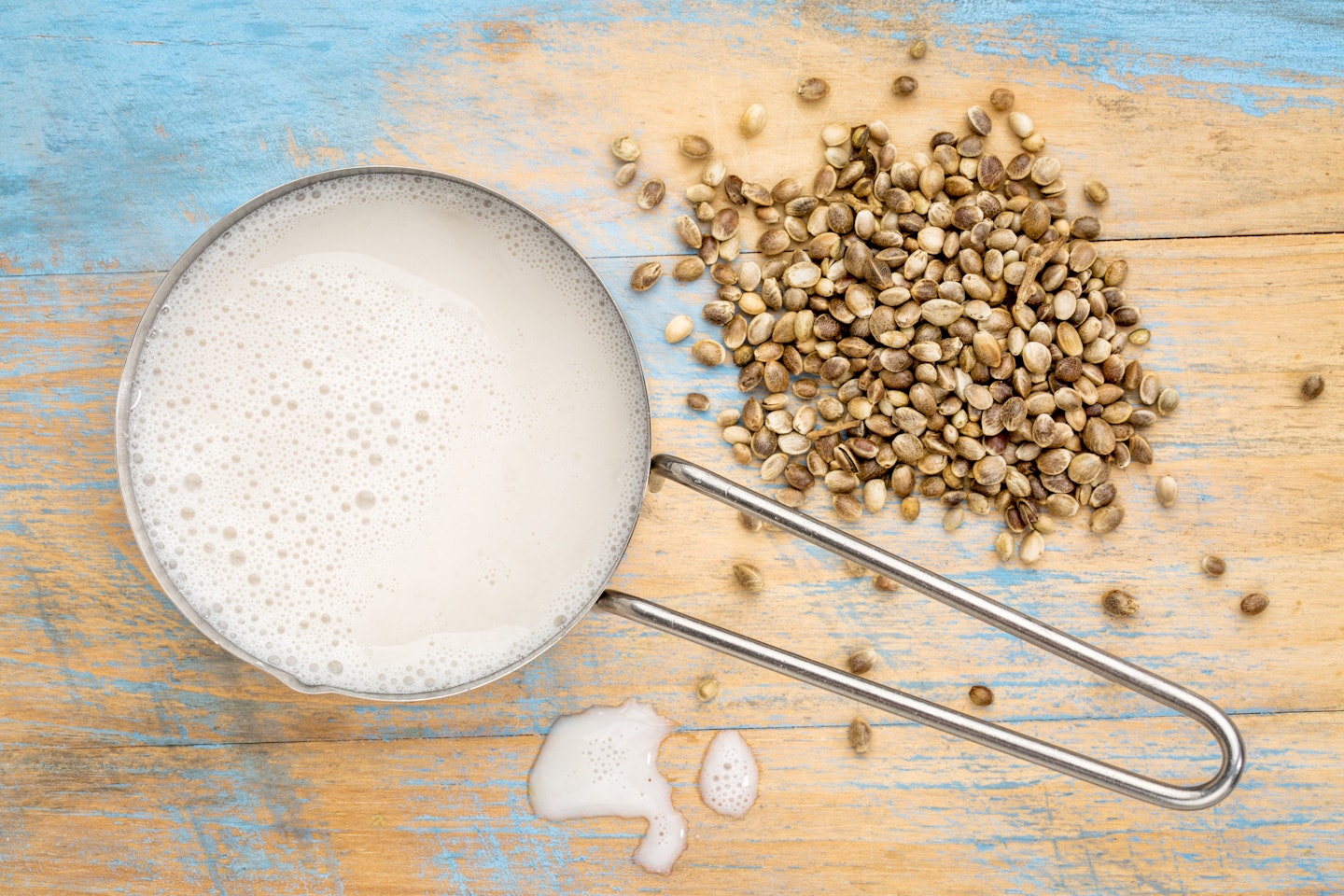
Hemp milk has a slightly nutty flavour and is a good source of omega-3 and omega-6 fatty acids, is naturally gluten-free and contains the essential amino acids that we need from food as the body cannot make it itself. It’s only downfall is that it’s taste is quite distinctive and can even be a little bitter to some.
Flax milk
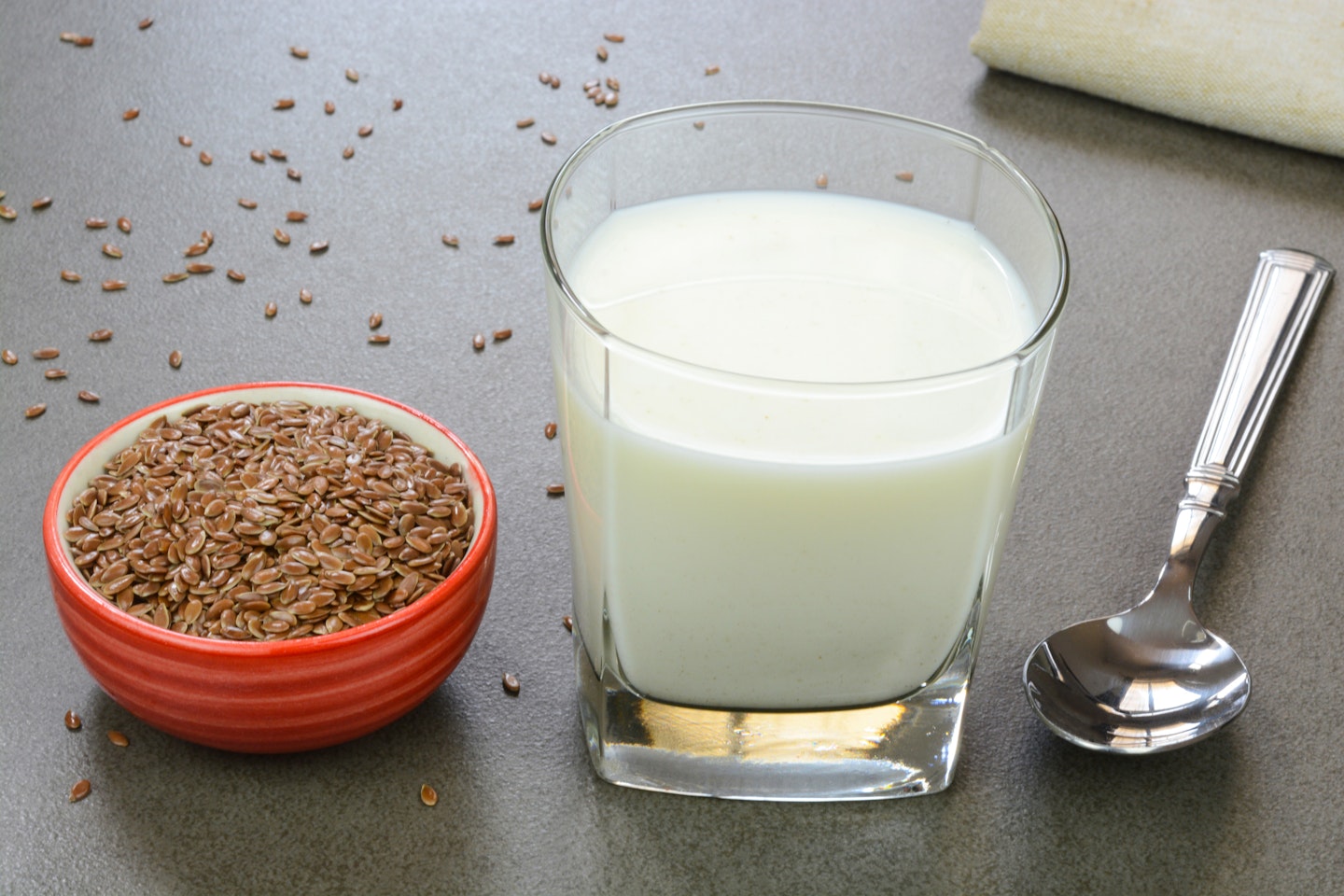
Just like hemp milk, flax milk has a distinctive taste and is slightly thinner in consistency.
It’s a good source of alpha linoleic acids (ALA), an omega-3 fatty acids that is anti-inflammatory. It doesn’t contain any protein (although there are some varieties that you can buy where this is added) and it contains more thickeners and preservatives to improve texture and taste.
Macadamia milk
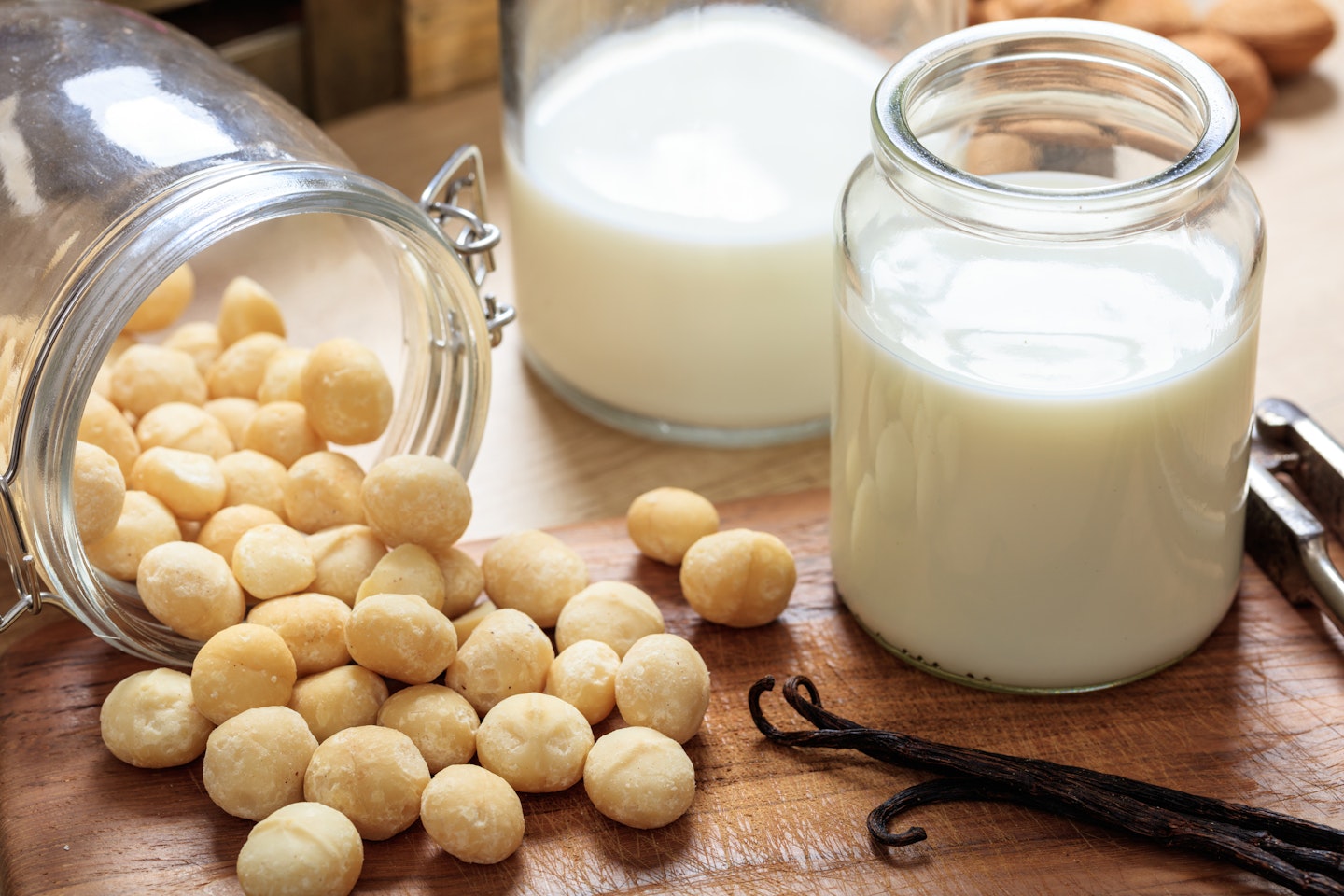
Pretty new to the market, macadamia milk is a milk alternative that’s creamy with a slightly nutty taste. It’s low in calories, contains a little protein, gluten-free and high in healthy fats. It does usually contain added sugars though and its thick consistency is down to it being mixed with protein powder.
Chia seed milk
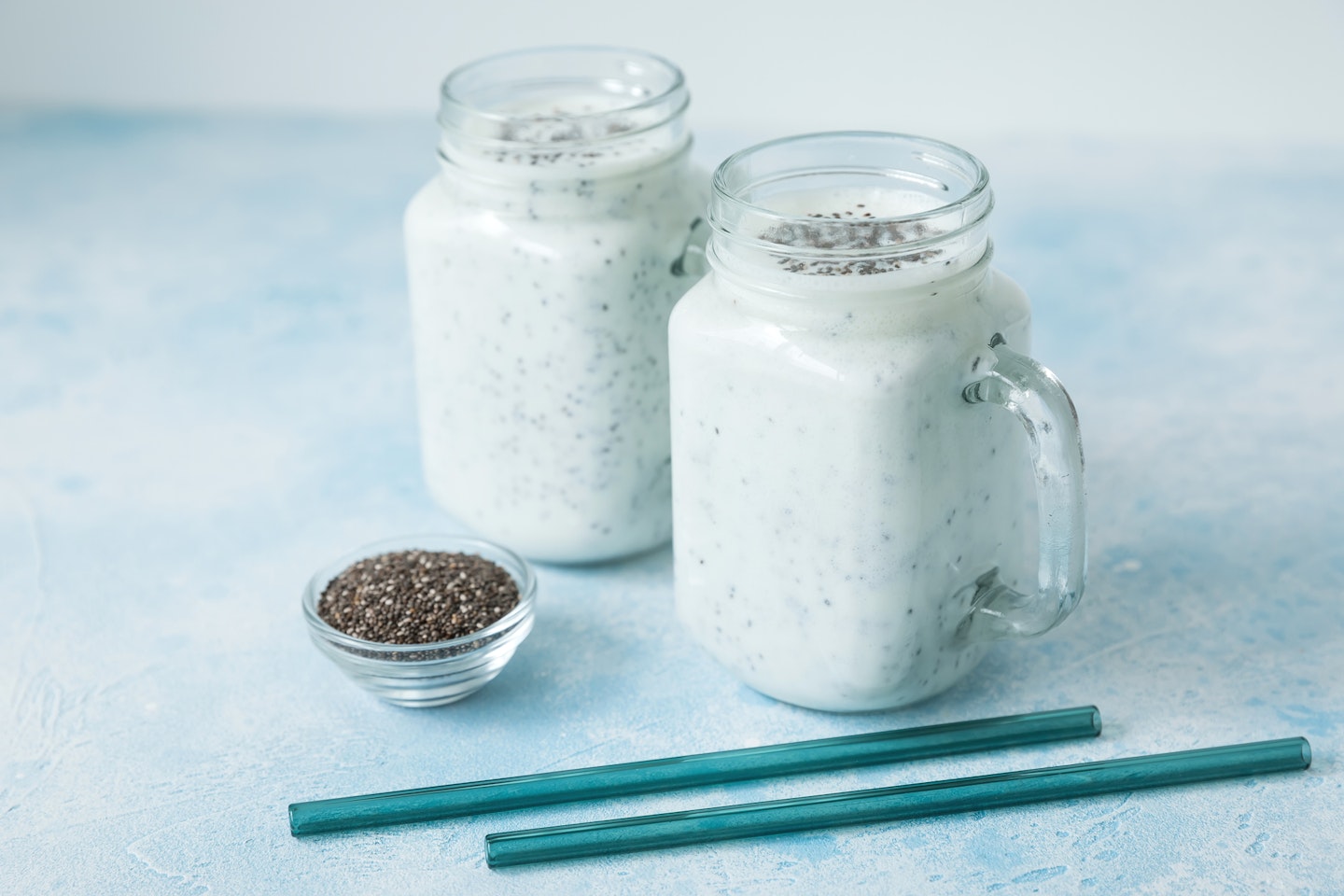
Chia seed milk is a good alternative for cooking and using in drinks. Like macadamia milk, some brands add protein powder to create a thicker consistency, and additives and sweeteners are usually thrown into the mix too. On the plus side, it is low in carbs and contains important omega-3 fatty acids.
Walnut milk

Another new kid on the block is walnut milk, which has a more distinctive nutty taste, making a nice milk alternative for coffees and baking. It’s naturally higher in protein and good fats, however, it does often contain added sugars.
